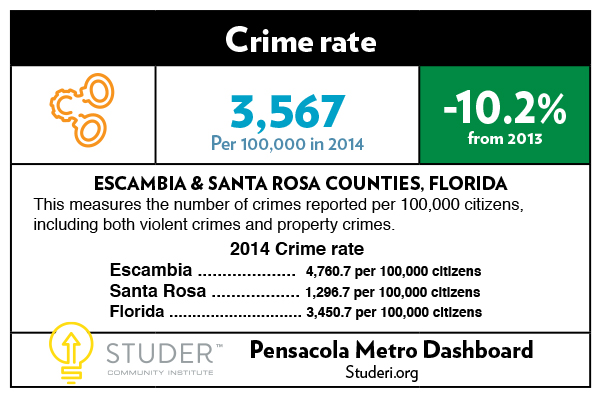Lawmakers quiz FDLE on rape kit backlog
- January 14, 2016
- / Margie Menzel
- / community-dashboard

The powerful chairman of a Senate committee that oversees the criminal-justice budget said Wednesday that Florida's backlog of thousands of untested rape kits is one of his top priorities.
But Sen. Joe Negron, R-Stuart, also made clear he isn't a fan of Florida Department of Law Enforcement proposals to outsource testing of the kits to clear the backlog.
"The response and the report and everything … it has a bureaucratic ring to it," Negron told Jennifer Pritt, the department's assistant commissioner for criminal justice services. "If this is the best you can do, we'll have to work through it. But it sounds like FDLE doesn't really want to do it."
"No," Pritt replied. "We would absolutely love to. … If we were at full staffing and we could retain our analysts, we would love to do this in-house. We do not feel we could come to you in good faith and say, 'Give us 25 more crime-lab analysts,' when we're at 24 percent vacancy rates and we can't keep the ones that we have."
The Negron-led Senate Criminal and Civil Justice Appropriations Subcommittee was discussing an FDLE report this month showing that more than 13,000 rape kits that could include evidence from sexual assaults are untested statewide.
Testing the DNA evidence could help law enforcement agencies catch rapists and prevent future rapes. But as the report noted, Florida does not have a law requiring the kits to be submitted for testing. That decision rests with local law-enforcement agencies.
Escambia County saw an uptick in sexual assaults at the six-month mark of 2015 in data collection. Data from the Sheriff’s Office shows a 36 percent increase in reported forcible rapes for the first six months of 2015, compared to the first six months of 2014. Seventy-nine rapes were reported as of June 30; 58 were reported in 2014.
Pensacola Police Department data shows a 40 percent increase in reported forcible rapes for the first six months of 2015, compared to the first six months of 2014. Fourteen rapes were reported in the city limits in the first six months of 2015; 10 were reported in the same time frame in 2014.
The crime rate is one of 16 quality of life measurements that the
Studer Community Institute’s Pensacola Metro Dashboard tracks. Created in consultation with the University of West Florida’s Office of Economic Development and Engagement, the dashboard is an at-a-glance look at the social, economic and educational well-being of our community.
Research of the prevalence of sexual assault across the country that University of West Florida Professor Raid Amin is a part of indicates that the Pensacola metro area is part of a statistical cluster the shows elevated levels of sexual assault.
The researchers mapped reported sexual assaults across the continental United States to see if some areas showed higher incidences of these crimes.
They did find areas where reported sexual assault reports were more prevalent. And one of them was the Escambia and Santa Rosa county area. When the data is adjusted for poverty and age, the Pensacola metro area is fifth in the country for an elevated risk of reported sexual assault.
Meanwhile, an additional 3,500 rape kits come annually to FDLE.
The report proposed three plans to catch up on the backlog. All involve outsourcing, with potential time frames ranging from three years to 8 ½ years.
Negron and Sen. Rob Bradley, R-Fleming Island, said testing sexual assault kits should be considered part of FDLE's core mission.
"I am having trouble wrapping my mind around outsourcing testing," Bradley said. "It seems like FDLE should be doing this testing."
"I don't mean to question your commitment at all," Negron told Pritt. "But there's no way in less than six years or eight years, that FDLE could test these sexual assault kits and resolve the problem? Is that the best you can do?"
"Yes, sir, I do believe it's the best we can do," Pritt said. "The reality is, as a state lab, we cannot hire these scientists. We are trying to hire people who have biochemistry degrees."
"Well, you could if you had more money, right?" asked Negron, who is slated to become Senate president in November.
"If we get to full staffing, these numbers will change," Pritt said.
After the meeting, Negron told reporters he was committed to making sure that sexual assault kits are tested "in a timely and reliable manner."
"Nothing we're going to do in this committee is more important than that," he said. "So we'll address it accordingly, and if there are other infrastructure needs or other things that are perfectly legitimate, some of those things may have to wait until this issue is resolved. … We'll do our part to provide the funding, and I hope that (FDLE) can respond by coming to us with a more aggressive plan on how they can get this done."
A bill (HB 179) filed by Rep. Janet Adkins, R-Fernandina Beach, would establish time limits for local agencies to submit rape kits to FDLE for testing. The measure has passed one House panel and faces two more. A similar measure (SB 636), filed by Sen. Lizbeth Benacquisto, R-Fort Myers, faces three Senate committees.

 CivicCon launches with a look at good growth in cities
CivicCon launches with a look at good growth in cities
 Building stronger brains one baby, one parent at a time
Building stronger brains one baby, one parent at a time
 SCI debuts commercial on Early Learning City
SCI debuts commercial on Early Learning City
 Entrecon: World class speakers and an opportunity to sharpen skills
Entrecon: World class speakers and an opportunity to sharpen skills
 PYP Quality of Life survey 2017
PYP Quality of Life survey 2017
 EntreCon Pensacola 2016: A look back
EntreCon Pensacola 2016: A look back
 Leadership tip: getting better employee takeaways
Leadership tip: getting better employee takeaways
 Leadership tip: be interested instead of interesting
Leadership tip: be interested instead of interesting
 Leadership tip: delivering difficult messages
Leadership tip: delivering difficult messages
 Brain Bags boost Arc, Early Childhood Court programs
Brain Bags boost Arc, Early Childhood Court programs